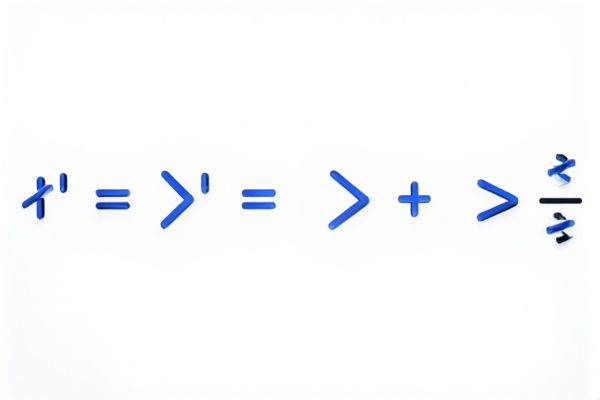
Explore endless possibilities with our online random sequence generator, designed to help you create unique mathematical sequences effortlessly. Whether for studying patterns, testing algorithms, or solving complex problems, this tool generates diverse sequences tailored to your specifications. Enhance your understanding of mathematical randomness and sequence behavior through intuitive, customizable settings.
Online tool for random sequence generator math
We have prepared several sample random sequence generators for you, ready to use and customize. You can enter your own list and generate a randomized sequence with just one click. This tool provides both a randomized list and a single value for easy application.Data Source
Single Result
Multiple Results
Understanding Random Sequence Generators
Random sequence generators in mathematics produce sequences of numbers where each value is generated without deterministic patterns, simulating true randomness through algorithms like linear congruential generators or Mersenne Twister. Understanding the statistical properties such as uniform distribution, independence, and periodicity is crucial for assessing the quality and applicability of these sequences in simulations, cryptography, and numerical methods. Rigorous testing using tools like the Chi-square test or autocorrelation analysis helps validate the randomness and reliability of the generated sequences.
Mathematical Principles Behind Randomness
Random sequence generators rely on mathematical principles such as probability theory and chaos theory to produce sequences that mimic true randomness. They often use deterministic algorithms like linear congruential generators based on modular arithmetic, ensuring uniform distribution and minimal predictability. Concepts from number theory and entropy measurement quantify randomness quality, crucial for applications in cryptography, simulations, and statistical sampling.
Types of Random Sequence Generators
Random sequence generators in mathematics are categorized into pseudorandom and true random generators based on their source of randomness. Pseudorandom sequence generators rely on deterministic algorithms such as linear congruential generators, Mersenne Twister, and Xorshift to produce sequences that approximate randomness. True random sequence generators derive randomness from physical processes, including radioactive decay, thermal noise, or atmospheric phenomena, ensuring non-deterministic and unpredictable outcomes.
Pseudorandom vs. True Random Generators
Pseudorandom sequence generators use deterministic algorithms to produce sequences that mimic randomness but can be replicated given the initial seed, making them essential for simulations and cryptographic applications where reproducibility is crucial. True random generators derive randomness from physical processes, such as electronic noise or radioactive decay, yielding non-deterministic sequences vital for high-security encryption and unbiased sampling. The key distinction lies in predictability: pseudorandom generators offer faster computation with controlled repeatability, whereas true random generators provide unpredictability at the cost of slower throughput and hardware dependency.
Seed Values and Initialization
Seed values in random sequence generators serve as the initial input that determines the starting state of the algorithm, ensuring the reproducibility of the generated sequences. Proper initialization involves using these seed values to set the internal state of the generator, which directly influences the statistical properties and periodicity of the output. High-quality seed selection and thorough initialization processes are crucial for producing truly pseudo-random sequences in mathematical computations and simulations.
Common Algorithms for Random Sequence Generation
Common algorithms for random sequence generation include Linear Congruential Generators (LCG), which use a mathematical formula to produce sequences based on modular arithmetic, and Mersenne Twister, known for its long period and high-quality pseudorandom numbers. Cryptographically secure generators like the Blum Blum Shub algorithm provide enhanced randomness suitable for security applications by relying on number theory principles. These algorithms balance performance and randomness quality, making them foundational in simulations, modeling, and cryptography.
Applications of Random Sequences in Mathematics
Random sequence generators play a crucial role in various mathematical applications, including Monte Carlo simulations, cryptography, and statistical sampling. These sequences are essential for modeling stochastic processes, optimizing algorithms, and solving complex integrals where deterministic methods are impractical. Leveraging pseudo-random number generators enhances problem-solving capabilities in numerical analysis and combinatorial optimization.
Evaluating the Quality of Randomness
Evaluating the quality of randomness in a random sequence generator involves statistical tests such as the chi-square test, frequency test, and runs test to detect patterns or biases. High-quality generators produce sequences with uniform distribution and minimal autocorrelation, ensuring unpredictability and reproducibility in simulations or cryptographic applications. Metrics like entropy rate and correlation coefficients quantify randomness strength, guiding improvements in algorithm design for pseudorandom number generators (PRNGs) and true random number generators (TRNGs).
Security Considerations in Random Sequence Generation
Security considerations in random sequence generation are critical for cryptographic applications, where predictability could compromise data integrity. True random number generators (TRNGs) leverage physical processes to produce high-entropy outputs, minimizing the risk of pattern replication. Pseudorandom number generators (PRNGs) must use robust algorithms with secure seeds, such as those based on cryptographically secure functions like AES or SHA-2, to ensure unpredictability and resistance against attacks like state compromise extension.
Future Trends in Random Sequence Generator Mathematics
Emerging research in random sequence generator mathematics emphasizes quantum computing algorithms to enhance true randomness and security in cryptographic systems. Advances in machine learning techniques are being integrated to predict and optimize pseudo-random number generation efficiency and distribution uniformity. Future trends indicate growing importance in hybrid models combining deterministic chaos theory with quantum phenomena to achieve superior randomness quality for complex simulations and secure communications.
 azrandom.com
azrandom.com